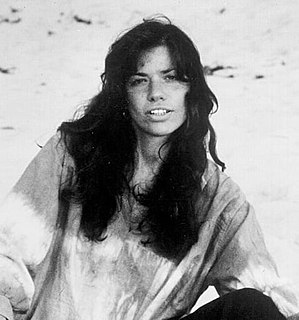A Quote by Marcel Proust
Only by art can we get outside ourselves, instead of seeing only one world, our own, we see it under multiple forms.
Related Quotes
Only through art can we get outside of ourselves and know another's view of the universe which is not the same as ours and see landscapes which otherwise would remain unknown to us like the landscapes of the moon. Thanks to art, instead of seeing a single world, our own, we see it multiply until we have before us as many worlds as there are original artists.
Maybe the only thing each of us can see is our own shadow. Carl Jung called this his shadow work. He said we never see others. Instead we see only aspects of ourselves that fall over them. Shadows. Projections. Our associations. The same way old painters would sit in a tiny dark room and trace the image of what stood outside a tiny window, in the bright sunlight. The camera obscura. Not the exact image, but everything reversed or upside down.
Thanks to art, instead of seeing one world only, our own, we see that world multiply itself and we have at our disposal as many worlds as there are original artists, worlds more different one from the other than those which revolve in infinite space, worlds which, centuries after the extinction of the fire from which their light first emanated, whether it is called Rembrandt or Vermeer, send us still each one its special radiance.
My point is that when you look at a rabbit and can see only a pest, or vermin, or a meal, or a commodity, or a laboratory subject, you aren't seeing the rabbit anymore. You are seeing only yourself and the schemes and appetites we bring to the world-seeing, come to think of it, like an animal instead of as a moral being with moral vision.
Art is a path on which we honour our world. Art may not be the only path, but it is a good path, even though at times a difficult one. As bearers of this honour, we artists do not need to simply render our world as we see it but as we might ourselves redesign it. As artists, one of our privileges is to invent.
The only way to gain power in a world that is moving too fast is to learn to slow down. And the only way to spread one’s influence wide to learn how to go deep. The world we want for ourselves and our children will not emerge from electronic speed but rather from a spiritual stillness that takes root in our souls. Then, and only then, will we create a world that reflects the heart instead of shattering it.
To see ourselves as others see us can be eye-opening. To see others as sharing a nature with ourselves is the merest decency. But it is from the far more difficult achievement of seeing ourselves amongst others, as a local example of the forms human life has locally taken, a case among cases, a world among worlds, that the largeness of mind, without which objectivity is self-congratulation and tolerance a sham, comes.
Or, to express this in another way, suggested to me by Professor Suzuki, in connection with seeing into our own nature, poetry is the something that we see, but the seeing and the something are one; without the seeing there is no something, no something, no seeing. There is neither discovery nor creation: only the perfect, indivisible experience.
In wishing to know ourselves fully, we must forget our quest for gain and seek only completion. At a certain point in our development, we no longer even seek to become Mystic, Magister, Sorcerer, or Witch: we seek only our own perfection in the wholeness of our Will, in the joining of light with dark and strength with love. We are varied and gorgeous yet pure of heart. Our aim is this: to know ourselves and to know the world.



































